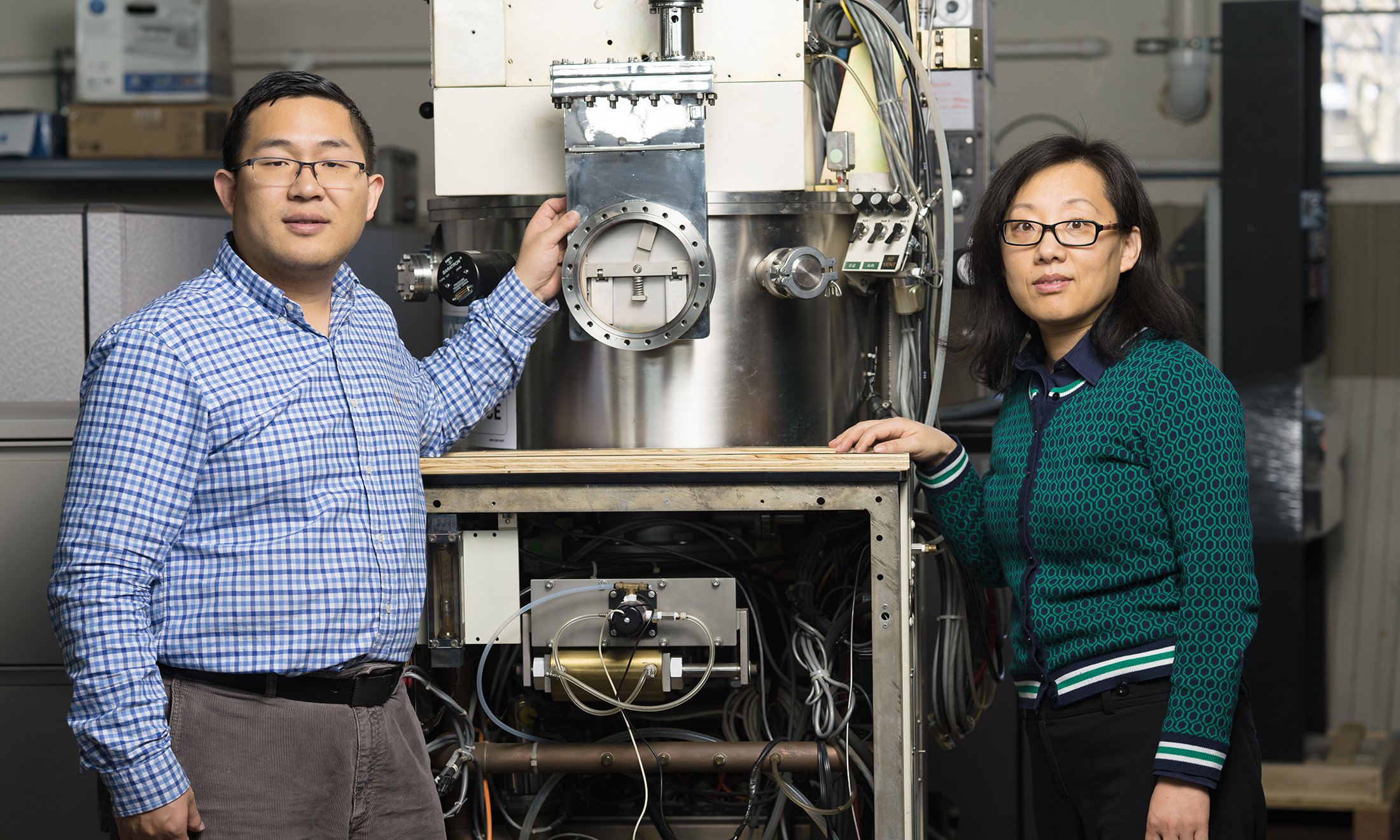Powering Up
The Advanced Battery and Energy Storage Laboratory creates powerful research opportunities for OU's mechanical engineers
Assistant Professor Peng Zhao, Ph.D., and Professor Xia Wang, Ph.D., in the Department of Mechanical Engineering, co-direct the laboratory with plans to meet the need for a safer and more energy-dense lithium-ion (Li-ion) battery for electric vehicles.
The ongoing trend toward growth in electric vehicles makes the development of a li-ion battery — an advanced power storage medium — an urgent matter. The Li-ion battery presents a number of challenges, however: low energy density, undesired irreversible change, and strong dependence on temperature. Dr. Zhao and Dr. Wang’s research is dedicated to addressing these challenges.
“Charging electric vehicles takes much longer than refueling a gasoline-powered vehicle; thus, fast charging, which increases the charging power, is in high demand. Made of explosive materials, Li-ion batteries tend to ignite and explode when an internal heat source is beyond a certain threshold,” says Dr. Zhao, whose current work targets battery thermal runaway and thermal management.
“My research focuses on developing physics-based models of various types of Li-ion batteries, predicts its aging and degradation under different operating conditions and develops a fast charging strategy of Li-ion batteries,” Dr. Wang says.
The researchers’ previous comprehensive computational study has already identified the safety regime of Li-ion batteries and provided important guidance to the fundamental understanding and prediction of thermal runaway phenomena caused by internal short circuits. The laboratory will enable their follow-up work, which includes Li-ion battery material decomposition and combustible gas release during thermal runaway.
Dr. Zhao and Dr. Wang have ambitious long-term goals for their laboratory: testing the thermal, cycling, and fast charging performance of Li-ion batteries at single-cell and pack levels; developing Li-ion batteries with new electrode/electrolyte materials; investigating the structure of battery materials and its fundamental internal electrochemistry; and providing direct guidance on the optimization of battery performance.
"The unique strength of the Advanced Battery and Energy Storage Laboratory is the capability for both theoretical modeling and testing. The research in this lab will improve existing electro-chemical and thermal models to address important and timely problems associated with energy storage, charging and battery safety," says Brian Sangeorzan, Ph.D., chair of the Department of Mechanical Engineering (ME).
In addition to Dr. Zhao and Dr. Wang, the laboratory team includes ME graduate students, Zihao Teng (M.S.), Jiahao Liu (M.S.), Liwen Zhang (Ph.D.), Rui Zhang (M.S.), and Zhibang Xu (Ph.D.).
The researchers hope that the laboratory will provide more training and hands-on research experience to ME students and strengthen the existing Electrification Certificate Program with Fiat Chrysler Automobiles (FCA) and other partners by providing direct battery testing platforms. “We expect that some FCA engineers in this program will conduct experimental testing in the lab,” Dr. Wang says.
The majority of the equipment for the laboratory was donated by BASF Corporation, but funding is still needed. Dr. Zhao and Dr. Wang intend to seek funding support from local industry, the United States Department of Energy and the National Science Foundation.

 May 07, 2020
May 07, 2020
 By Arina Bokas
By Arina Bokas









